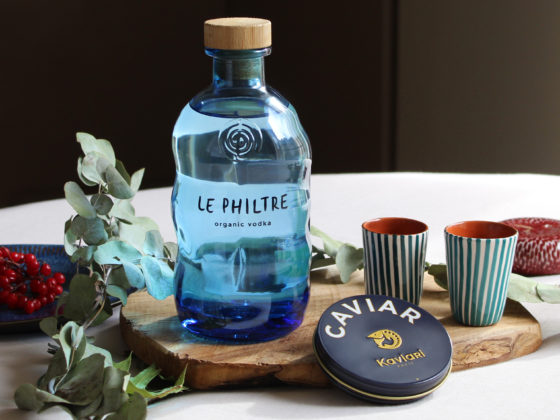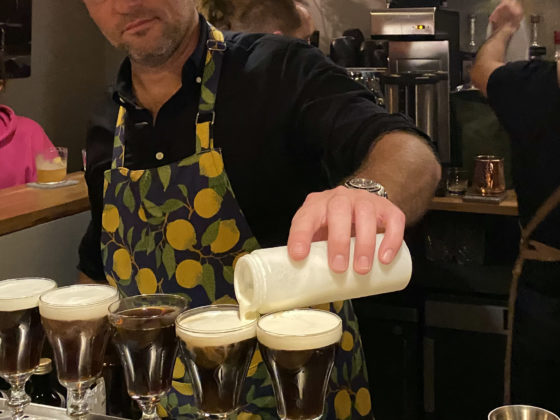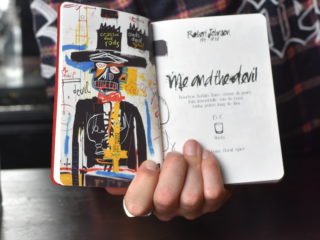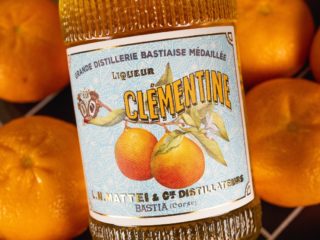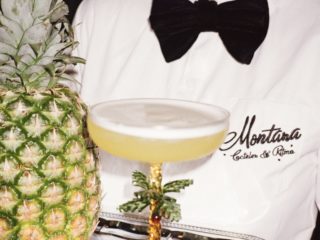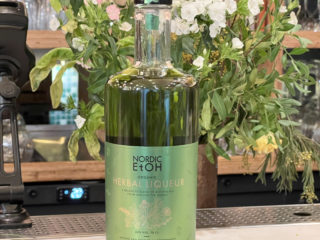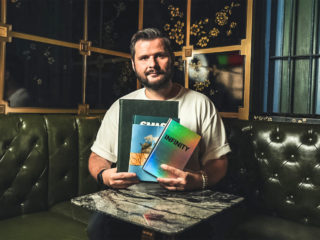Being queer and working in the industry, either in France or elsewhere, has never been addressed in Alambic, although the editorial line is passively inclusive. We took the opportunity to rectify that and address that topic from a European point of view thanks to the opportunity presented by Bar Convent Berlin to meet with Alex Day* and Alex Negranza** who were coming from America to do a presentation called “Cocktail Bars: My Queer Safe Place”.
Bartenders need to understand the time, place and experience
Alex Negranza and Alex Day came to BCB for a few different reasons, first on a personal level, to learn about where different trends come from in cocktails culture and not to appropriate culture. Alex N is adding « America is insulated, self-sufficient and escapism is very real (tropical drink culture, aperitivo bars, etc…) and it’s important to understand the culture that they are born from » Nobody will argue about the fact that cocktails are the (great) American contribution to the world of F&B and there is no doubt American bars and bartenders have set the tone for trends and innovation for many decades.
“The hospitality community has for decades helped serve the public and it’s about time we look at how we can help each other”
BCB is helping visitors to get a better understanding of the cocktail culture and to get some inspiration, Alex D says « Inspiration can come after attending a trade show, innovation comes after being exposed to many ideas, conversations, trying out new things after you come home » Negranza adds « Innovation comes from being exposed to ideas, interpreting them in your own way, expressing them in a way that’s unique to yourself, your culture, your bar, or your community, and letting it evolve. »
But in the case of that presentation, inspiration came before the trade show, « BCB gave us the opportunity to put our thoughts together about being gays and the queer experience of working in the industry, as well as do self-reflection with the hope of planting seeds of ideas for others by starting the conversation. »
Why it is very important these conversations are being given a platform and especially on international stages like BCB.
Cocktail bars don’t have a gender identity but they are usually seen as a straight place and most of them will be passively inclusive yes, in theory. I’ve recently did a poll on social media and asked for a list of LGBTQ cocktail bars in Paris, nobody said all cocktail bars are for everybody. So that proves we still consider cocktail bars as being straight. In fact, there’s a general predisposition of what a “gay bar” looks like: the rainbow bottles on the back bar, the inclusion of certain brands and the omission of other brands. The same can be said of the modern cocktail bars and the cocktail bartender.
For instance, Alex D being one of the owners of Death & Co, explains that his cocktail bar may be perceived as following the aesthetics directions of old-time bars, but at its leadership level is helmed by a board of directors composed of six people with half self-identified as queer. (Outwardly, Death & Co may be seen as “straight,” but in reality, it is nothing of the sort. His company isn’t about hiding sexuality, but rather is unified by professionals working together to a common goal.)
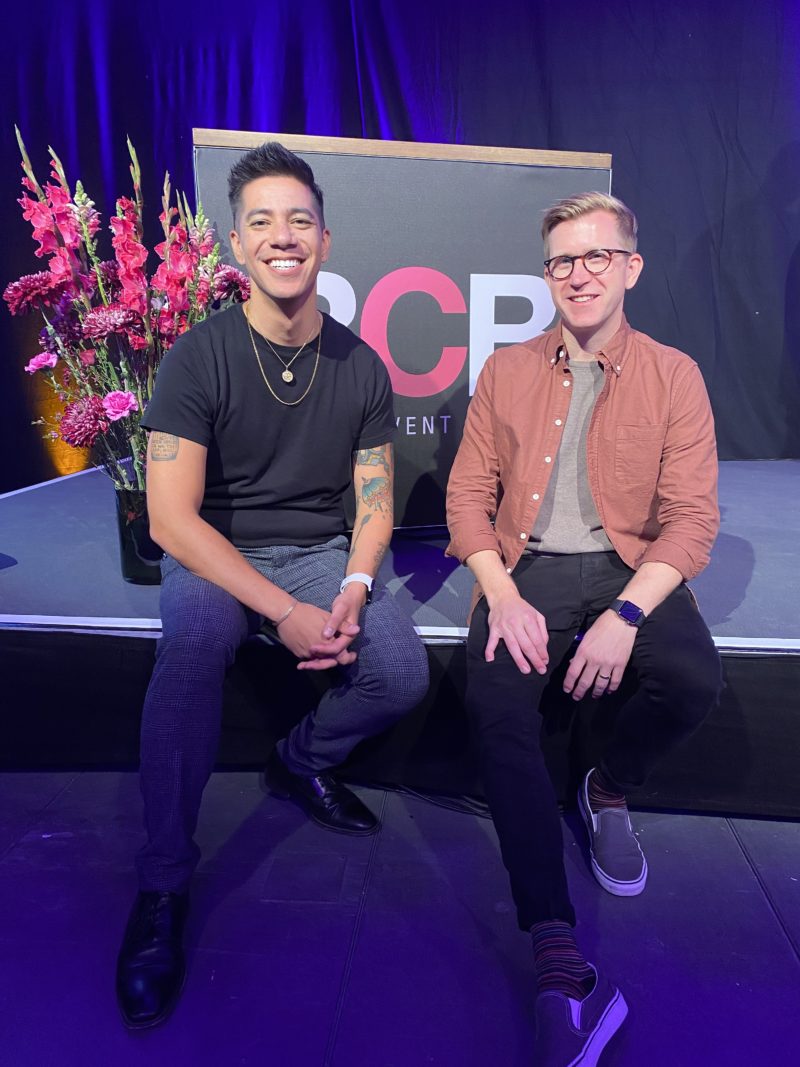
And this is what made Alex D coming forward today, « Because this topic requires visibility, and we want to engage with people but I didn’t want one aspect of my personality and experience to belittle all the accomplishments we have made. I’m grateful that we’re now in a place where I can be both queer and also a good bartender without worry of compromise to our achievements or perspective. »
The struggle is real, in a society that can be extremely judgmental and close-minded people harming thy neighbour under religious pretence or a political guise. Alex N and Alex D believe that a path towards acceptance could come from the hospitality industry first and ultimately reach the guests across the bar. “Bartenders have always been extremely influential to public discourse…” Negranza adds. “… lobbyists are to politicians, as bartenders are to the public. We serve the public every week- each of us, thousands of people a week.”
No politics, no religions and the First Amendment.
The ‘No politics, no religions’ mentality found in bars is an accepted unspoken cultural rule common in the US. It’s a precedent that was birthed into the culture at the beginning of the rebirth of the cocktail movement it the 2000’s: don’t talk about certain things – like politics, sex, or religion. That form or censorship is supposed to keep the peace and make bars a safe place for all, but in the process it has subdued perspectives and identities that are, in themselves, inherently political. Such as identifying as queer.
The historical politicization of the queer identity in the U.S. driven mostly by arbitrary religious pretext has driven the very identity and representation of queer people to be erased from that re-birthed cocktail culture because being queer inferred a political opinion or a religious affiliation (or lack thereof). Now as a foreigner what I see is the irony of erasing the visibility of queer people in cocktail bars to avoid conflicts and making people uncomfortable in a country where the freedom of speech is king/or queen!
What first led Alex D to enjoy and engage in bartending was about human connection, the opportunity for people of all walks of life to share a moment of connectivity over a drink. « The drinks we serve in cocktail bars allow the person to relax and connect, and allow to have a more in depth conversation. Coming to a trade event like this where there are so many people finding space for each other, in that sense BCB is a big, cultural cocktail » But if you look around you – for instance during BCB, you won’t notice many openly queer people working for brands.
To be culturally accepted most queer people have to cover up who they are and that make them not being seen – also being queer is not something you can ‘see’ unless that person is being a stereotype. Neutrality is expected when working in the industry and many have to use a ‘manly’ voice to be respected.
Why should we care?
From our privileged place in a European country like France where everybody can legally marry, of course not everybody agrees with that (still) but this is legal. We need to look at what is happening on the other side of the Atlantic Ocean (and in many other places) where progress is being taken away, such as in the recent case Roe V. Wade in America and the impact on abortion access. A dangerous precedent for their highest court rulings- and it’s been clear from the political and religious stances of members of that court that they will consider overturning the fundamental right to same-sex marriage (Obergefell v. Hodges) and possibly even the right for same-sex couples to have intercourse in their own homes (Lawrence v. Texas). In France, the senate denied the inscription in the French constitution of the abortion and contraception rights this year, we’ll see how it goes from here as there is still hope. Anyway, the procedure came in response of what happened in the US, meaning there are bridges and influences between cultures and countries.
Europe has the means to lead the way on that matter and set the trend about intentionally hiring queer people, adding a flag at the door, on social media or on the menu all year round (because being gay is not only happening during pride day). Alex N adds « Because we know America will not set the trend of putting more diverse queer representation behind the bar. Bartenders have a power they don’t realise having, they are the trend setters and we can collectively change as an industry. Europe is immensely more diverse with its people and dense with its culture. It also widely accepts queer people so openly in ways that are more culturally developed and mature than what I think the common American public is ready for. America has much bigger problems to worry about right now.”
Think before you speak.
We can start with something easy, that everybody can do: think about the vocabulary you use, and here we are not talking about polishing a part of your personality to become politically correct or taking away your freedom of speech. No, we are talking about being sensitive with the terms we use, like shaming a guy for ordering a ‘girly drink’ (because cocktails don’t have genders first of all and if there were, being a girly drink wouldn’t be something shameful).
We can laugh without thinking at a dumb joke, we all do that mistake at least one time in our lives but seriously, racism is not funny, homophobia is not funny, misogyny is not funny, having a disability is not funny to laugh at. If you are lucky enough to have freedom of speech where you live, use it for good and not for dumb shit, please!
We need more gay and queer representation in the industry.
All private companies ultimate goal is to make profit, but some want to play a social part like hiring more women or people coming from minorities. « The problem in the US is the marketability of bartenders, the politicisation of the queer identity and the fact that being straight is more socially acceptable than being gay. Brands do not want to alienate any market representation, and due to religion and politics, being gay is less popular than being heteronormative… or straight. So there is a marketability advantage to being straight, masculine, and often times, Caucasian. The same can be said on the flipside. There is an economic and marketability disadvantage to being queer, feminine, and/or a person of color because queers want equal rights protected, women want reproductive rights protected, and people of color want basic human rights protected- all of which are political and social issues that brands want to avoid making an affiliation with » says Alex N.
There are aspects to bartending we romanticise and yes let’s not forget the fundamental difference between bartending in the US and in France: tips. We don’t work for tips here so you will find a more relaxed approach to that topic. In an industry where image plays a big part it is not an easy decision to come forward and make a statement about acceptance of private choices and lifestyles. Should we mix businesses values and private lives of staff?
Should bars become more politically engaged? ‘You should have questions about what you do and how you do it and how you can support and how you can be a better advocate because the hospitality industry has for decades helped people and it’s about time we look at how we can help each other’. We can only be touched by Alex Negranza and Alex Day appeal. As a brand, a bar owner, a bar manager, a bartender, a human being, what will you do?
*Alex Day, who now lives in Portland Maine, is a managing partner at Gin & Luck, the hospitality company that owns Death & Co, which has now expanded in various locations across the US, New York, Denver, Los Angeles and soon Washington DC but also The Danforth in Portland to only name a few. He is the co-author of Death & Co: Modern Classic Cocktails, as well as the James Beard and Spirited Award-winning book, Cocktail Codex: Origins, Fundamentals, Formulas, and the recently released, Death & Co: Welcome Home.
**Alex Negranza, born in California, began working in Seattle, and now a resident of Houston, started as a barista at 16yo then 3years later started making cocktails and shortly after he became a bar manager. Formerly the Director for Operations for Bobby Heugel and bars like Anvil Bar & Refuge, The Pastry War, Tongue-Cut Sparrow, and Better Luck Tomorrow. He was a presenter at the first-ever queer seminar at Tales of The Cocktail, and has been recognized by Imbibe Magazine as Bartender of The Year, Wine Enthusiast 40-Under-40, as well as numerous other national bartending recognitions and pubications.
He is now a beverage director and consultant, involved in the Negroni Week and he is the President of the Gay & Lesbian Alliance for Spirited Sipping- a non-profit organization that specifically focuses on LGBTQIA+ advocacy specifically within cocktail bars and spirits-focused hospitality businesses.



